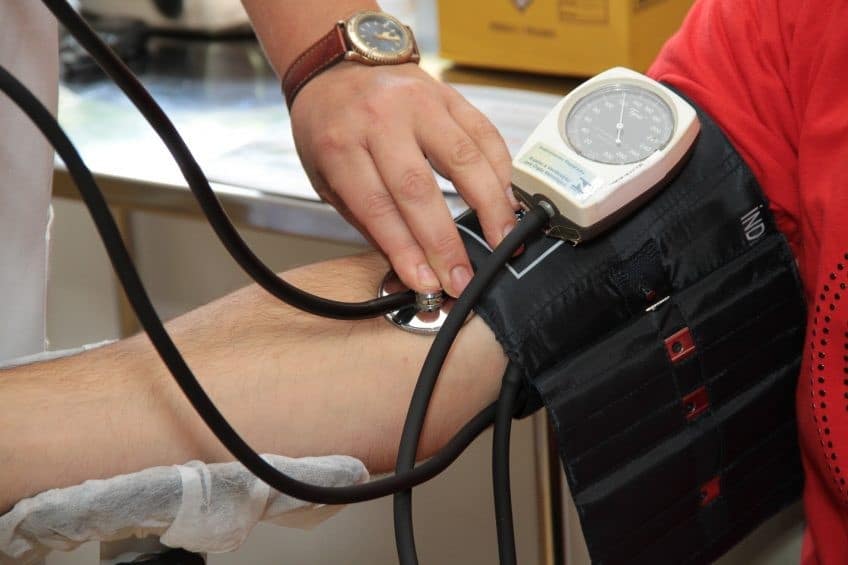Florida Supreme Court Questions Constitutionality of “Ex Parte” Communications in Medical Malpractice Cases
Medical MalpracticeThe Florida Supreme Court is reviewing a case involving “ex parte” communications between defense counsel and a plaintiff’s treating physicians in the pre-suit period of a medical malpractice case. Oral argument was held on December 8, 2016 in the case of Weaver v. Myers, Case Number SC15-1538. Several justices were asking questions that court watchers would consider “critical” of the practice and that such communications have a “chilling” effect on legitimate claims. The First DCA had already upheld the law as constitutional. The law being challenged in section 766.106(6)(b)(5)-(6), Fla. Stat.
Note* The Florida Supreme Court has issued its opinion in this case. I have written a separate post here.
Private Interviews With Plaintiff’s Treating Doctors
The law allows for “interviews of treating health care providers” by an attorney defending against the plaintiff’s claims. Such “interview” requires that the plaintiff’s attorney schedule a date and time with the physician, however, the physician is not required to participate. Failure by the plaintiff’s attorney to schedule the interview results in the ability of the defense to conduct the interview without the presence of plaintiff’s counsel.
Unsworn Statements With Plaintiff’s Treating Physicians
The law also allows for an attorney defending against the plaintiff’s claims to take an “unsworn statement” from any of the plaintiff’s treating physicians. The law specifically permits plaintiff’s counsel to attend these statements. Unsworn statements do not appear to optional for the physicians, except that notice should be reasonable.
Justice Were Concerned About Exposing Private Health Information
Justice Pariente suggested that these communications might have a “chilling” effect on medical malpractice claims in that claimants might be reluctant to use the court system to bring legitimate claims. Pariente said that “your medical information is one of the most private of what you possess as a citizen, what you talk to your doctor about, your treating doctors, and it could go far from just your medical condition.”
The attorney for the defendant doctor said “the purpose of [the law] is to have a full and free exchange of all information relating to a claim prior to entering the courthouse doors in order to weed out frivolous cases and settle meritorious cases.”
Medical Malpractice Cases Are Not About the Claimant’s Privacy Because the Claimant’s Entire Health History is Directly At-Issue
As a Florida medical malpractice attorney, the privacy of a medical malpractice claimant is not an issue at all. When a person brings a medical malpractice case, their entire health history is at issue and is discoverable anyway, even medical issues for which are unrelated to the issue in litigation. In a Florida medical malpractice case, the defense gets to subpoena any and every record that they can find under the sun. They do so because they want to find anything in the medical record that may indicate that the claimant has been dishonest about something in their past medical history and, therefore, imply to a jury that the claimant may be dishonest about the claim that they are suing for.
The Real Purpose Behind the Law is to Intimidate
The real (and unstated) purpose behind the law is not privacy. Instead, it is the opportunity to intimidate the claimant’s treating physicians into supporting the defendant doctor. The opportunity to take these statements for hours upon hours on end give the defense attorney the opportunity to effectively “waterboard” the treating doctors until they say something that destroys the plaintiff’s case. The leverage of the statement is that “if you (the doctor) give us what we want, then this won’t take very long and you can go back to your practice (where you make money), otherwise, we’ll be here all afternoon.” To a medical doctor, there are only so many hours in a day and the loss of income for an afternoon can be a lot, especially when multiplied several times over (for cases that he is not even a party to).
The Playing Field Should Be Kept Level
This law should be held unconstitutional because it unfairly restricts access to the courts. It is also unfair in that it offers defendants an advantage over plaintiffs. Plaintiffs have no right to compel doctors to give statements unless a pre-suit investigation has concluded that the doctor did something wrong. Why should a defendant (who is accused of doing something wrong) get to compel statements by doctors who are not accused of doing something wrong? The healthcare system simply cannot operate if everyone can compel statements from anyone else instead of practicing real medicine.
If You Have a Question on a Florida Medical Malpractice Case
Call us to discuss any question you may have about a Florida medical malpractice case. Our attorneys have years of experience handling medical malpractice issues. A consultation with a Lakeland medical malpractice attorney is free.


